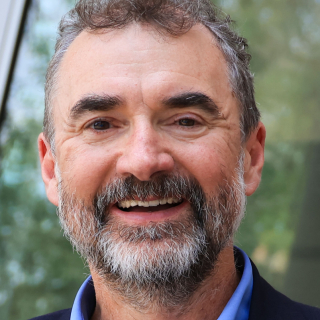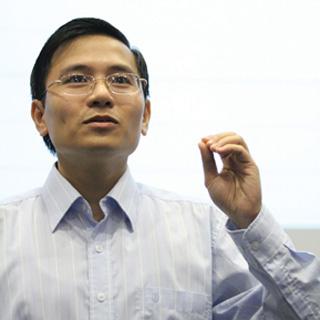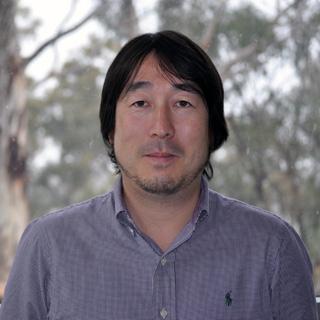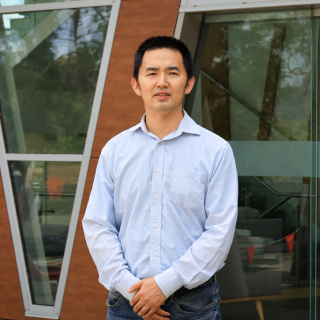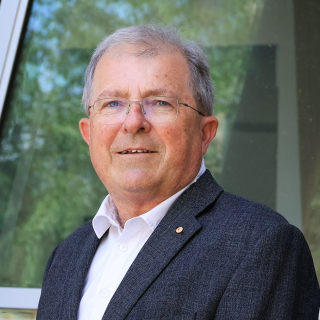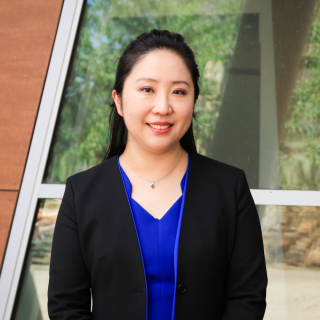Master of Environmental and Resource Economics

Overview
Study in-person or online
In 2025, all graduate courses offered by the Crawford School will be available for either in-person or online study. All students are expected to attend live sessions at particular times each week for their courses. Crawford online courses are not ‘study at your own pace’. International students studying on an Australian student visa should enrol in in-person courses.
Participation
Real-time interaction, discussion and debate between students and with convenors is a central part of the learning experience. Attendance at interactive classes is important for both on campus and online students.
Influence major policy decisions
Stringent economic analysis and global best practice have become critical to effective policy-making for environmental and resource issues such as water allocation and carbon emissions control. The Master of Environmental and Resource Economics (MEREC) degree helps you take economic analysis to an advanced and specialised sphere, then apply these concepts to high-level environmental, resource management, and energy policy issues.
Read our student story:
From Rembau to Crawford: A journey towards sustainable growth and environmental advocacy
Is the MEREC for me?
The MEREC program attracts a variety of participants. Ministers of finance for developing countries across Asia and the Pacific, as well as senior policy-makers working in central banks and national planning agencies, have completed the program to update their economics expertise in key development issues. The MEREC degree is also a viable career development option for mid-tier Australian policy officers looking to undertake part-time studies. You should ideally have a Bachelor degree in economic or mathematics, or be able to demonstrate your ability to undertake quantitative analysis and apply abstract thinking.
Why choose the MEREC?
The aim of the MEREC program is to provide you with an in-depth understanding of the economic approaches that can be applied to inform and resolve resource management issues.
Taught by the world’s leading researchers and practitioners, the program will develop your high-level skills in quantitative analysis and modelling, using both theoretical and evidence-based methodologies. With this advanced economic knowledge, you’ll be able to develop strategies to integrate environmental and resource decisions into the broader context of national and international economic policy.
You’ll also be able to study in areas of specialisation to suit your career objectives. Elective courses include agricultural and resource economics, cost-benefit analysis, quantitative methods, economic regulation, and environmental and natural resource policy.
What are my career options?
When you graduate from this program, you’ll be well-equipped to secure senior leadership and management roles in research and policy analysis in Australia and overseas. Our graduates have won prominent positions with universities, national and international policy agencies, leading national and multinational corporations, and civil society organisations.
Application Deadlines
Please note application deadlines are different for domestic and international students.
Domestic students
This program is with pre-sessional program (PSP) component for domestic students.
• Semester 1 2025 intake:
Application closing date: 15 Dec 2024
Acceptance date: 3 Jan 2025
Start date: 13 Jan 2025
• Semester 2 2025 intake:
Application closing date: 31 May 2025
Acceptance date: 1 June 2025
Start date: 12 June 2025
International students
Find ANU’s general application and acceptance deadlines by visiting the webpage linked here.
Key dates for application:
• Semester 1 2025 intake for private applicants:
Application closing date: 31 Oct 2024
Final acceptance date: 1 Dec 2024*
Start date: 13 Jan 2025
• Semester 1 2025 intake for scholarship/partnership applicants:
Application closing date: 15 Dec 2025
Final acceptance date: 3 Jan 2025*
Start date: 13 Jan 2025
• Semester 2 2025 intake for private applicants:
Application closing date: 15 April 2025
Final acceptance date: 15 May 2025*
Start date: 12 June 2025
• Semester 2 2025 intake for scholarship/partnership applicants:
Application date: 15 April 2025
Final acceptance date: 15 May 2025*
Start date: 12 June 2025
*Some students may need to accept well before this date to allow for visa processing times in their country.
For study in person, view the full degree program structure, admission requirements and academic information.
For study online, view the full degree program structure, admission requirements and academic information
To find out more, contact us at crawford.degrees@anu.edu.au today.
Degree structure
Duration
1-2 year/s full time depending on credit
Admission requirements
A Bachelor degree or international equivalent with a minimum GPA of 5/7. Or, view alternative requirements by clicking the link here.
Credit
Applicants with a bachelor’s degree or Graduate Certificate in a cognate discipline may be eligible for 24 units (one semester) of credit.
Applicants with a Graduate Diploma or Honours in a cognate discipline may be eligible for 48 units (one year) of credit.
Credit may also be available for relevant work experience.
Cognate disciplines
- Applied Economics
- Econometrics
- Economic Policy
- Economics
- Engineering
- Mathematics
- Statistics
Shape your degree
Students can choose from a wide variety of courses offered by the economics program, the public policy program, and the resource, environment and development program at Crawford School, and other parts of ANU. By choosing particular courses, students can create their own professional focus. Courses can be combined across different professional focus and there are many more electives available.
View the full degree program structure, admission requirements and academic rules information.
Academics
Shiro Armstrong
Director, Australia-Japan Research Centre; Director, East Asian Bureau of Economic Research; and Professor, Crawford School
Contact details
Paul Burke
Professor; Head, Arndt-Corden Department of Economics; Deputy Director, Crawford School of Public Policy
Contact details
Quentin Grafton
Professor and Laureate Fellow; Chairholder UNESCO Chair in Water Economics and Transboundary Water Governance
Contact details
Warwick McKibbin
Distinguished Professor and Director, ANU Centre for Applied Macroeconomic Analysis (CAMA) in the Crawford School of Public Policy at the Australian National University (ANU)
Contact details
Hoa Nguyen
Associate Professor; Editor of Asia and the Pacific Policy Studies; Editor of PLOS ONE; Editor of ANU Press on Public Policy;
Contact details
Toan Nguyen
Lecturer and Research Fellow – Development Policy Centre
Contact details
Room: +61 2 6125 3826
Budy P Resosudarmo
Professor, Arndt-Corden Department of Economics; Head, Indonesia Project
Contact details
News
- 1 of 7
- next ›
Scholarships and fees
Scholarships and support
Scholarship opportunities are available for national and international students.
Fees
Costs associated with your study at ANU will depend on a number of things, including your study program and whether you’re a national or international student.
Find out more about costs and fees associated with studying at ANU.
Updated: 21 November 2024/Responsible Officer: Crawford Engagement/Page Contact: CAP Web Team










